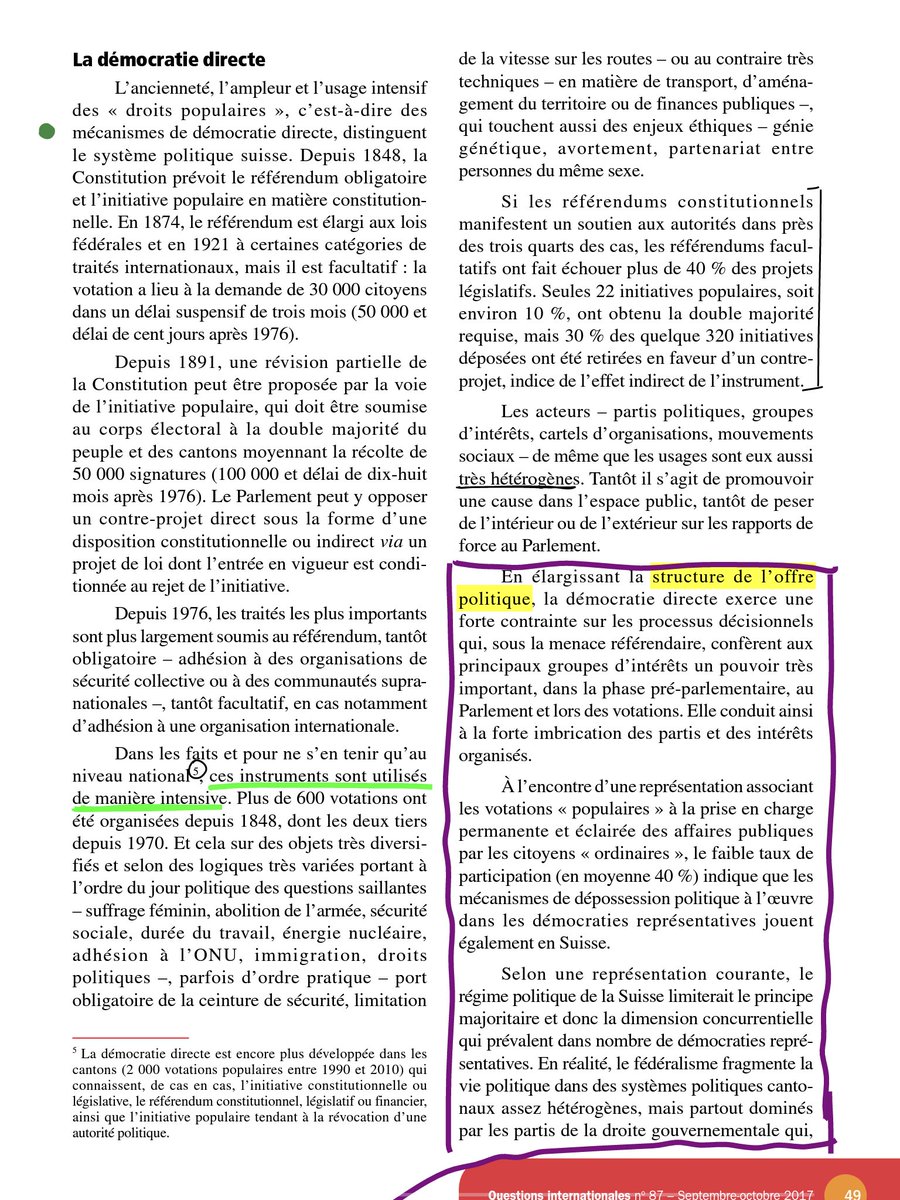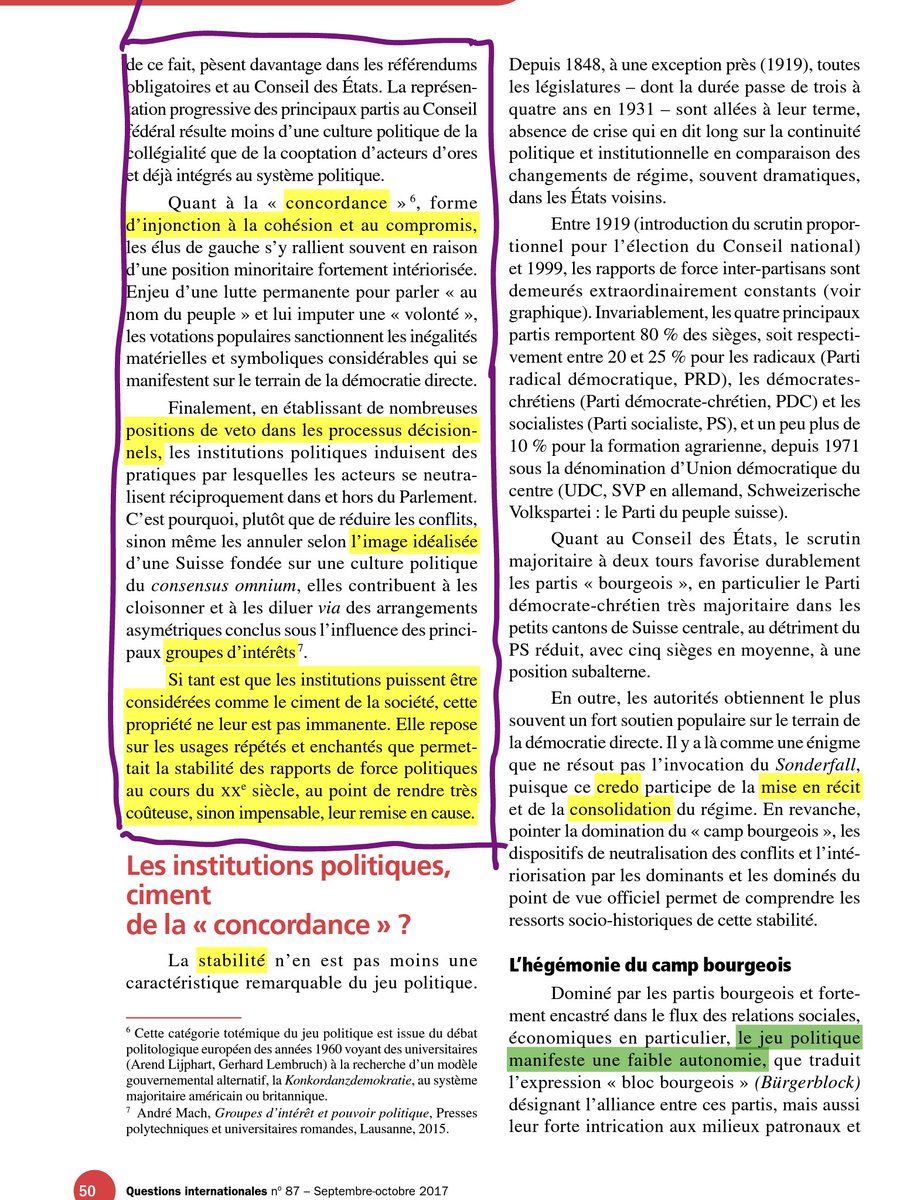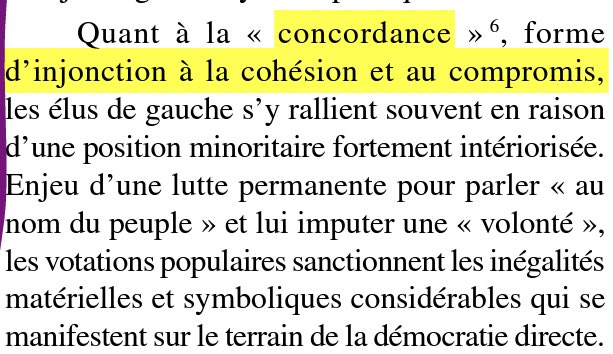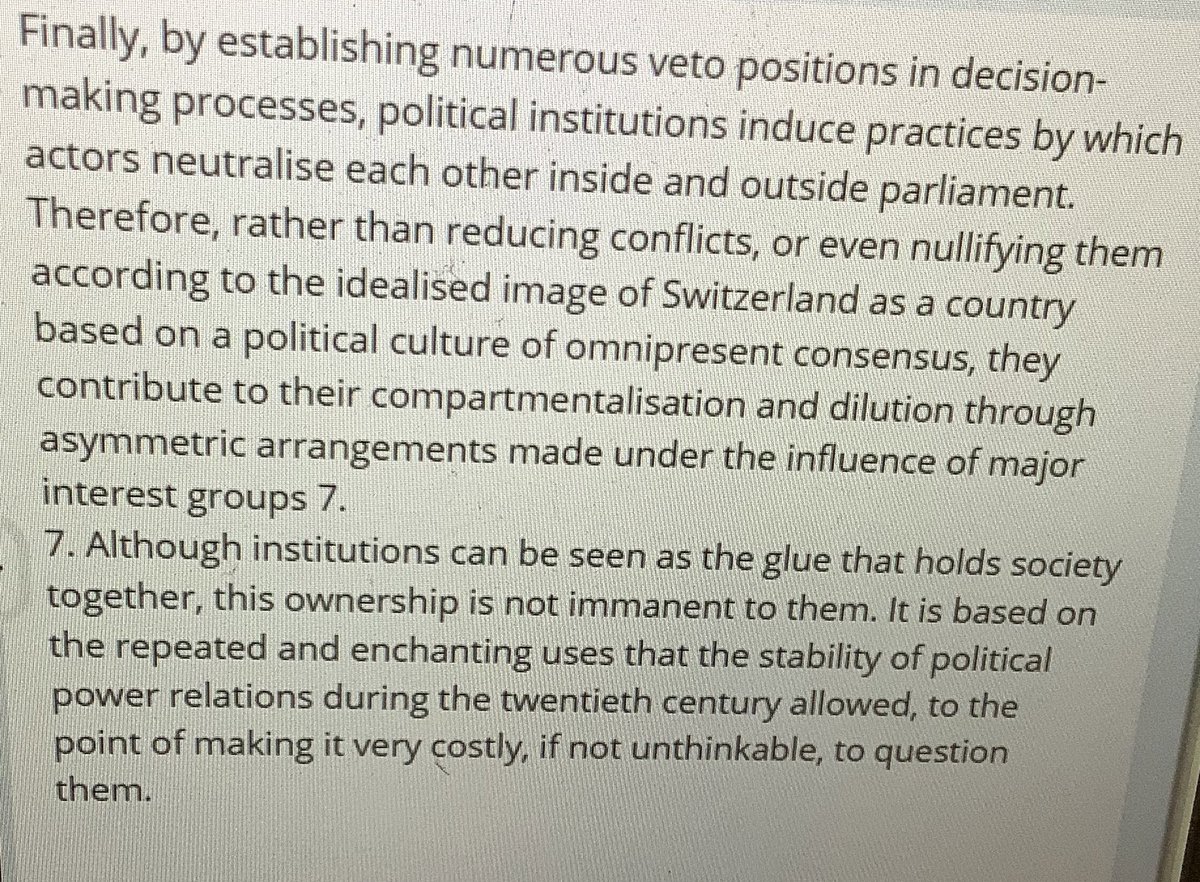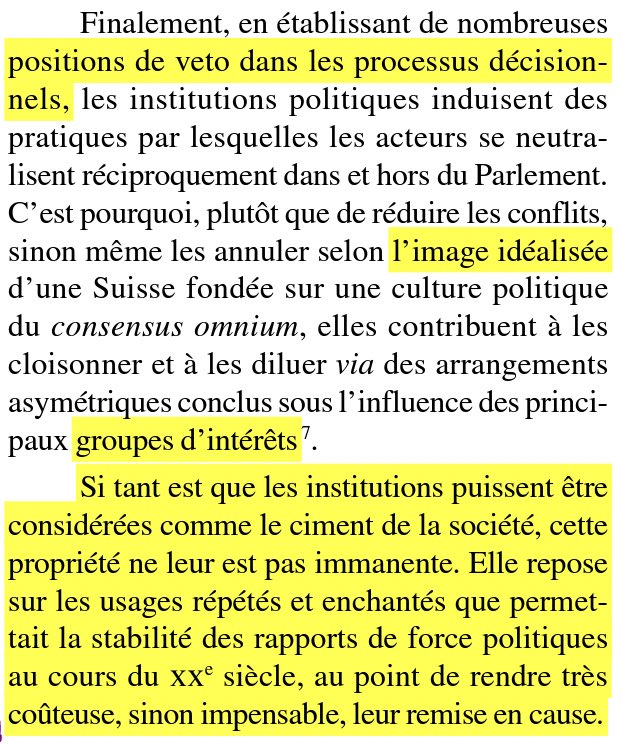The & #39;(actually semi-/pseudo-) direct democracy& #39; in Switzerland creates a dimension of indeterminacy (a key component of the ideal of democracy) and (& #39;external& #39;, for lack of a better word) pressure in the political decision-making process. Legislators are under the constant
(potential) threat of referendum, and are forced to anticipate the (potential) reaction from the citizenry who can try to stop the laws being proposed by lawmakers(etc.). But the remarkable stability (unrivaled in Europe) of the Swiss political system would be surprising
if that were the end of it... The aforementioned indeterminacy reinforces the pre-parliamentary phase of the decision-making process, when experts/commissions and interest groups are consulted. The latter (interest groups) are profoundly integrated into the political process
from the pre-parliamentary phase, to the Parliament, to popular votations (i.e., the & #39;direct democratic& #39; part of the system). The ideological-cultural (and kinda nationalistic too) "founding" myth in Switzerland is that of a reasonable, peaceful national community able to reach
"the best of all worlds" (political, social and economic stability and success) because of its beloved democratic institutions which are considered as legitimate because enabling this national citizens body to actually make the decisions and so on. But obviously the key lesson
is that Switzerland is certainly different (most countries never give citizens anything close to a say/input on specific political decisions), but NOT THAT DIFFERENT from other bourgeois systems. (Switzerland has always been dominated by bourgeois parties, with actually the lack
of an institutionalized popular workers& #39; party as happened historically in much of Europe (SPD/Leftist parties in Germany, Communist parties in France and Italy, etc)
Hence the political dispossession of the masses, which is a central characteristic of all bourgeois systems, is
Hence the political dispossession of the masses, which is a central characteristic of all bourgeois systems, is
unsurprisingly a key aspect of the Swiss political system too. Federalism divides politics into state-political systems which are all dominated by rightwing bourgeois parties which are thus more powerful in the national political/decision-making process
(partly by way of being represented at the national parliament (Conseil des Etats))
Two more passages from Voutat & Rayner& #39;s article:
Two more passages from Voutat & Rayner& #39;s article:

 Read on Twitter
Read on Twitter